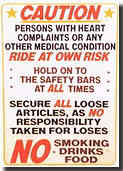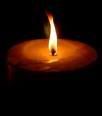Wednesday, April 08, 2009
White Heat
White Heat: The Friendship of Emily Dickinson and Thomas Wentworth Higginson (2008) by Brenda Wineapple
 New York Times review by Miranda Seymour.
New York Times review by Miranda Seymour.
The Nation review by Ange Mlinko.
This blogpost is not a review.
I like White Heat. I like the wily, unscrupulous, manipulative Dickinson of White Heat. I like her, & would have liked to have tried to correspond with her. Of course, she would have brushed me off as unworthy of her attention, thought the New England branch of my family beneath her, the kind of folks who played the fiddle at barn dances (they still are).
With Dickinson, I read & studied what was required in class, & later I read & enjoyed. She helped convince me that if I was going to insist upon ampersands & ambivalent cases, tenses, & punctuation, I ought to give the little 'zine editors a break & stick to the left margin. (archy the cockroach concurred.) The only poem I've written I might consider Dickinsonian has three short unrhymed four-line stanzas & is comprised entirely of quotes from Pearl Bailey. Had I written twenty more like it, I would now have a fine reputation for craft & wry humor.
Dickinson lived the way she did because she could. If leaving the secure haven of home made her anxious, if she was becoming agoraphobic, she didn't have to resist it. If her shyness made interacting with any but the most familiar people around her a painful encounter, if she was overly sensitized to spoken language, too inclined to hear unintended meanings, she would choose her company & communicate with others via letters & notes. She became very eccentric, to be sure. She also happened to be a genius. She certainly wasn't crazy. She pulled away from the world to keep from going crazy. She knew what was going on in the world, & she knew what it could do to her art & sanity.
Like Dickinson, I don't travel well, physically or socially. This is not unusual for writers, you don't have to be a genius. Genius is a darned good excuse.
If Emily Dickinson hadn't been a genius, she would have been merely a local eccentric ("The Myth" they called her while she was alive) & author of peculiar verse, perhaps even now a minor legend in the environs of Amherst. But she was a kind of genius & the great miracle is that she so desperately wanted to be one that she worked hard at it. If she hadn't reached out to & won over Thomas Wentworth Higginson, a popular writer & well-known advocate of progressive causes, decades might have passed before her poetry fully came to light, & much of her poetry may have been lost. Who would've successfully promoted her & turned her into a literary star within years of her death? Her sister? Her unhappy sister-in-law? Her brother's mistress?
We owe a lot to Higginson, he was basically a good guy. In the context of his era he was a fine writer & enlightened man. What's more, Higginson was able to stand apart from the bizarre dynamic of those three women, whose mutual devotion to Dickinson wasn't enough to make them trust each other. Each of them had a piece of Emily, & added together they didn't make a whole. Only Higginson, cautious as he was, understood that he was opening the door to the unadulterated Emily Dickinson, dashes & all, that she couldn't be watered down & cooled off in posterity. He took the long view, doing for Dickinson - when she could no longer object (sincerely or not) - what Walt Whitman did for himself. & while she was alive, he was her primary connection to the literary world of the day. After awhile she pretended he was the "Master," he pretended she was the "Student," when she was actually his High Priestess in her temple & he was the devotee. Emily frightened Thomas when he visited her, unnerved him. But he probably wasn't so surprised.. Who else was so immediately astonished by the apparent brilliance & newness of her poetry? Judge Otis Lord? He was the old fart Emily convinced herself she loved romantically after Higginson married a younger woman who apparently liked sex.
If we take Dickinson & Whitman as the two pole stars of American poetry in the 19th Century, we find that we can't follow either of them. They both have cultish admirers, & they both baffle. They magnetically attract & repel us. Their poetic "tricks" become predictable, their rhythms tedious. Emily's opposites & paradoxes, sung to the tune of "The Church's One Foundation.'" If we omit the dashes. But she produced more "good" poetry than Whitman, by certain standards of self-containment. Walt was constantly changing Leaves of Grass, trying to fix it, complete it, but only changing it. He had a grand scheme. By not publishing, Dickinson could put aside the concept of "finishing" a poem. Also a grand scheme, & a modern one in our culture.
They also represent the two poles of literary self-aggrandizement. Good poets are always getting nudged aside by the local Whitmans. Even the local Dickinsons are really Whitmans, with their small entourages & votaries at readings, sighing inside all the proper pauses like an Oprah studio audience.
At the height of her minor pop star fame around 1970, Diane Wakoski, a poet I love, went on the road & did something like 200 reading gigs in a year, earning less than a comparable folk singer. Read her poems & you know why she couldn't keep that up. What poets must do to establish & maintain even a modest reputation would make them well-to-do in just about any other endeavor. Emily Dickinson couldn't be Emily Dickinson now; she'd be diagnosed with a social anxiety disorder & medicated.
In conclusion - do I have one? Brenda Wineapple has written a marvelous dual biography, & it's an excellent way to read a large number of Dickinson's poems. The thought of Emily listening & perhaps approving while her brother Austin boinked Mabel Loomis Todd on the dining room table is priceless.
 New York Times review by Miranda Seymour.
New York Times review by Miranda Seymour.The Nation review by Ange Mlinko.
This blogpost is not a review.
I like White Heat. I like the wily, unscrupulous, manipulative Dickinson of White Heat. I like her, & would have liked to have tried to correspond with her. Of course, she would have brushed me off as unworthy of her attention, thought the New England branch of my family beneath her, the kind of folks who played the fiddle at barn dances (they still are).
With Dickinson, I read & studied what was required in class, & later I read & enjoyed. She helped convince me that if I was going to insist upon ampersands & ambivalent cases, tenses, & punctuation, I ought to give the little 'zine editors a break & stick to the left margin. (archy the cockroach concurred.) The only poem I've written I might consider Dickinsonian has three short unrhymed four-line stanzas & is comprised entirely of quotes from Pearl Bailey. Had I written twenty more like it, I would now have a fine reputation for craft & wry humor.
Dickinson lived the way she did because she could. If leaving the secure haven of home made her anxious, if she was becoming agoraphobic, she didn't have to resist it. If her shyness made interacting with any but the most familiar people around her a painful encounter, if she was overly sensitized to spoken language, too inclined to hear unintended meanings, she would choose her company & communicate with others via letters & notes. She became very eccentric, to be sure. She also happened to be a genius. She certainly wasn't crazy. She pulled away from the world to keep from going crazy. She knew what was going on in the world, & she knew what it could do to her art & sanity.
Like Dickinson, I don't travel well, physically or socially. This is not unusual for writers, you don't have to be a genius. Genius is a darned good excuse.
If Emily Dickinson hadn't been a genius, she would have been merely a local eccentric ("The Myth" they called her while she was alive) & author of peculiar verse, perhaps even now a minor legend in the environs of Amherst. But she was a kind of genius & the great miracle is that she so desperately wanted to be one that she worked hard at it. If she hadn't reached out to & won over Thomas Wentworth Higginson, a popular writer & well-known advocate of progressive causes, decades might have passed before her poetry fully came to light, & much of her poetry may have been lost. Who would've successfully promoted her & turned her into a literary star within years of her death? Her sister? Her unhappy sister-in-law? Her brother's mistress?
We owe a lot to Higginson, he was basically a good guy. In the context of his era he was a fine writer & enlightened man. What's more, Higginson was able to stand apart from the bizarre dynamic of those three women, whose mutual devotion to Dickinson wasn't enough to make them trust each other. Each of them had a piece of Emily, & added together they didn't make a whole. Only Higginson, cautious as he was, understood that he was opening the door to the unadulterated Emily Dickinson, dashes & all, that she couldn't be watered down & cooled off in posterity. He took the long view, doing for Dickinson - when she could no longer object (sincerely or not) - what Walt Whitman did for himself. & while she was alive, he was her primary connection to the literary world of the day. After awhile she pretended he was the "Master," he pretended she was the "Student," when she was actually his High Priestess in her temple & he was the devotee. Emily frightened Thomas when he visited her, unnerved him. But he probably wasn't so surprised.. Who else was so immediately astonished by the apparent brilliance & newness of her poetry? Judge Otis Lord? He was the old fart Emily convinced herself she loved romantically after Higginson married a younger woman who apparently liked sex.
If we take Dickinson & Whitman as the two pole stars of American poetry in the 19th Century, we find that we can't follow either of them. They both have cultish admirers, & they both baffle. They magnetically attract & repel us. Their poetic "tricks" become predictable, their rhythms tedious. Emily's opposites & paradoxes, sung to the tune of "The Church's One Foundation.'" If we omit the dashes. But she produced more "good" poetry than Whitman, by certain standards of self-containment. Walt was constantly changing Leaves of Grass, trying to fix it, complete it, but only changing it. He had a grand scheme. By not publishing, Dickinson could put aside the concept of "finishing" a poem. Also a grand scheme, & a modern one in our culture.
They also represent the two poles of literary self-aggrandizement. Good poets are always getting nudged aside by the local Whitmans. Even the local Dickinsons are really Whitmans, with their small entourages & votaries at readings, sighing inside all the proper pauses like an Oprah studio audience.
At the height of her minor pop star fame around 1970, Diane Wakoski, a poet I love, went on the road & did something like 200 reading gigs in a year, earning less than a comparable folk singer. Read her poems & you know why she couldn't keep that up. What poets must do to establish & maintain even a modest reputation would make them well-to-do in just about any other endeavor. Emily Dickinson couldn't be Emily Dickinson now; she'd be diagnosed with a social anxiety disorder & medicated.
In conclusion - do I have one? Brenda Wineapple has written a marvelous dual biography, & it's an excellent way to read a large number of Dickinson's poems. The thought of Emily listening & perhaps approving while her brother Austin boinked Mabel Loomis Todd on the dining room table is priceless.
Labels: about writing, what I'm reading
Comments:
<< Home
"If a nation expects to be ignorant and free, in a state of civilization, it expects what never was and never will be." Thomas Jefferson
Have "one" what? Social anxiety disorder and medicated? Well, duh, you write about it often enough.
It's fun to read your blog. I know I'm more political when I actually take the time out to blog these days, but even when I do open up, it's not quite as creative as you. I find it funny I write for a living, but it obviously isn't creative writing! Unless the creativity is in the novel theory of law that doesn't exist but you are doing your damndest to convince a judge you are right!
It's fun to read your blog. I know I'm more political when I actually take the time out to blog these days, but even when I do open up, it's not quite as creative as you. I find it funny I write for a living, but it obviously isn't creative writing! Unless the creativity is in the novel theory of law that doesn't exist but you are doing your damndest to convince a judge you are right!
Do I have a conclusion? I know I have the social anxiety thing. But I don't mind actually meeting people & talking with them.
Post a Comment
<< Home















